Choosing the Right Drill Bit for Granite: A Comprehensive Guide

Granite is a popular material for countertops, flooring, and other applications due to its durability and natural beauty. However, drilling through granite can be a challenging task if you don’t have the right tools. One of the key factors in successfully drilling through granite is using the right drill bit.
There are several types of drill bits that are suitable for drilling through granite, each with its own advantages and limitations. One of the most commonly used drill bits for granite is the diamond-tipped bit. As the name suggests, these bits have diamond grits embedded in their tips, which makes them extremely hard and capable of drilling through tough materials like granite.
Another type of drill bit that can be used for drilling through granite is the carbide-tipped bit. These bits are made from a combination of carbide and steel, which gives them the strength and sharpness required to drill through granite. They are a more affordable alternative to diamond-tipped bits, but they may not last as long and may require more frequent sharpening.
When choosing the right drill bit for granite, it’s essential to consider factors such as the size of the hole you need to drill, the type of granite you are working with, and the amount of time and effort you are willing to invest in the drilling process. By understanding these factors and selecting the appropriate drill bit, you can ensure a successful drilling experience and achieve the desired results for your granite project.
Understanding Granite
Granite is a type of rock that is formed from the cooling and solidification of magma or lava. It is an igneous rock that is known for its durability and natural beauty. Granite is composed mainly of quartz and feldspar crystals, with small amounts of other minerals such as mica and amphibole.
Granite is one of the hardest natural materials, making it an ideal choice for a variety of applications. It is commonly used as a building material for countertops, flooring, and wall cladding. Its unique patterns and colors make it a popular choice for interior and exterior design.
Granite comes in a wide range of colors, from light shades of white and gray to darker shades of black and brown. Each slab of granite is unique, with its own distinctive pattern and veining. It is this natural variation that adds to the beauty and appeal of granite.
Granite is highly resistant to heat, scratching, and staining, making it a practical choice for kitchen countertops. It is also resistant to bacteria and other microorganisms, making it a hygienic option for food preparation surfaces.
When it comes to drilling into granite, it is important to choose the right drill bit to avoid damaging the material. The hardness and density of granite can make it challenging to drill, but with the right tools and techniques, it can be done effectively.
In the following sections, we will discuss the different types of drill bits that are suitable for drilling into granite, as well as the factors to consider when choosing the right drill bit for your project.
What is Granite?
Granite is a type of igneous rock that is formed from the slow crystallization of magma below the Earth’s surface. It is composed mainly of quartz, feldspar, and mica, with other minerals present in smaller amounts.
Granite is known for its durability and strength, making it a popular choice for a wide range of applications, including countertops, flooring, and monuments. It is also valued for its unique and beautiful appearance, with a variety of colors and patterns available.
Granite is formed over millions of years as molten magma slowly cools and solidifies. As the magma cools, minerals within it begin to crystallize and grow, resulting in the formation of granite. The process of granite formation typically occurs deep within the Earth’s crust, where conditions are suitable for magma to cool slowly.
Once formed, granite is extremely hard and dense, making it resistant to scratches, heat, and stains. It is also highly resistant to weathering and can withstand the test of time, which is why it is commonly used for outdoor applications such as building facades and monuments.
Granite is quarried in large blocks from mines or quarries, where it is then cut into slabs or tiles for various uses. It is a natural material that varies in color and pattern, giving each piece a unique and distinctive look.
Overall, granite is a versatile and beautiful natural stone that offers both durability and aesthetic appeal. Whether used in construction or as a decorative element, it adds a touch of elegance and sophistication to any space.
Factors to Consider
When choosing the right drill bit for granite, there are several factors that you should consider. These factors will ensure that you have the right kind of drill bit for the specific task at hand. Here are some important factors to keep in mind:
1. Material
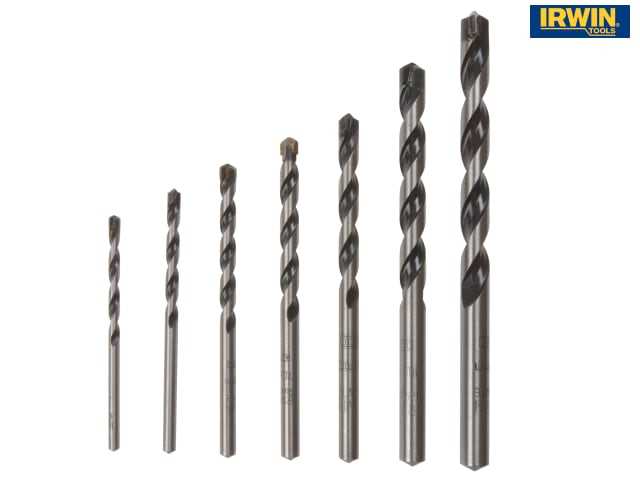
The material of the drill bit is crucial in determining its performance and durability. For drilling through granite, you will need a drill bit made from materials that are tough enough to handle the hardness of the stone. Look for drill bits made from materials such as diamond or carbide, as they are known for their strength and ability to withstand the demands of granite drilling.
2. Size
The size of the drill bit will depend on the specific task and the size of the hole you need to drill. For smaller holes, a smaller drill bit will be sufficient, while larger holes will require bigger drill bits. Make sure to choose a drill bit that suits the size requirements of your project.
3. Type
There are different types of drill bits designed specifically for different drilling applications. When drilling through granite, consider using masonry drill bits or diamond core drill bits. These types of drill bits are specially designed to handle the hardness of granite and will provide better results compared to regular drill bits.
4. Shank Type
The shank type of the drill bit is important for compatibility with your drilling machine. Most drill bits have a round shank, which is compatible with most standard drill chucks. However, some drill bits may have a hex shank or SDS shank, which are designed for specific types of drilling machines. Make sure to choose a drill bit with a shank type that is compatible with your drilling machine.
5. Coating
Some drill bits come with coatings that can enhance their performance and durability. Look for drill bits with coatings such as titanium or black oxide, as they can reduce friction and heat buildup during drilling. These coatings can also help increase the lifespan of the drill bit.
By considering these factors, you can ensure that you choose the right drill bit for your granite drilling needs. Taking the time to select the right drill bit will make the drilling process more efficient and help you achieve better results.
Granite Quality
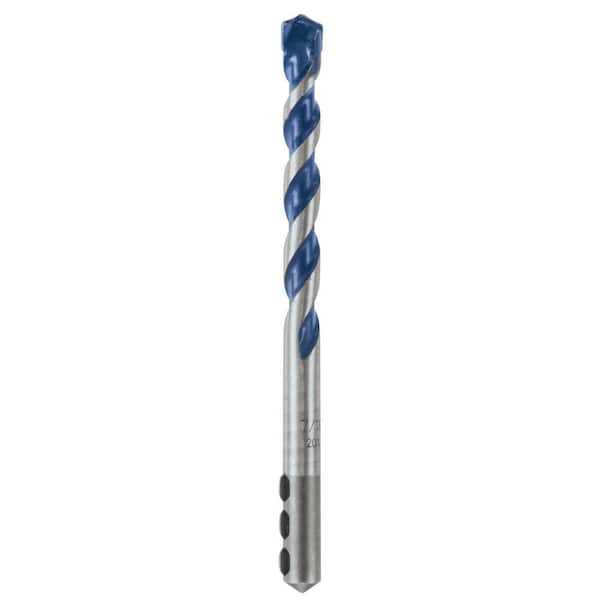
When it comes to drilling into granite, the quality of the granite plays a crucial role in determining the success of your drilling project. The quality of granite can vary depending on various factors, including its composition, density, and durability.
Composition
Granite is primarily composed of different minerals such as quartz, feldspar, and mica. The composition of the granite can affect its hardness, durability, and resistance to drilling. Generally, granite with a higher quartz content tends to be harder and more challenging to drill.
Density
The density of granite is another essential factor to consider when drilling. High-density granite tends to be harder and more resistant to drilling compared to lower density granite. The density of granite can be determined by its weight per unit volume. A higher density indicates a more compact and durable granite.
Durability
The durability of granite is crucial when it comes to drilling. Granite that is more durable will be able to withstand the drilling process without cracking, chipping, or crumbling. Factors that contribute to the durability of granite include its composition, density, and overall quality.
Quality Considerations
When selecting a drill bit for drilling into granite, it is vital to consider the quality of the granite. Poor quality granite may be more prone to damage during drilling, leading to ineffective results and potential safety hazards. High-quality granite, on the other hand, will provide a more reliable and satisfactory drilling experience.
| Quality Indicators | Description |
|---|---|
| Uniform Color and Pattern | High-quality granite will have a consistent color and pattern throughout the slab. Inconsistent colors or patterns may indicate lower quality granite. |
| Smooth Surface | An even and polished surface indicates a higher quality granite. Rough or uneven surfaces may be a sign of poor quality granite. |
| No Visible Cracks or Fissures | High-quality granite should not have any visible cracks or fissures. These imperfections can weaken the granite and make drilling more challenging. |
| Dense and Heavy | High-quality granite will feel dense and heavy. Lighter or less dense granite may indicate lower quality. |
By considering these factors and quality indicators, you can ensure that you are working with the best quality granite for your drilling needs. High-quality granite will not only make your drilling project more efficient but also ensure the longevity and durability of the drilled holes.
Drill Bit Material
Choosing the right material for your drill bit is essential when working with granite. The material of the drill bit will determine its durability, sharpness, and overall performance when drilling through the tough stone.
1. High-Speed Steel (HSS)
High-Speed Steel (HSS) is a popular choice for drilling granite due to its durability and ability to handle high speeds. HSS drill bits are made from a combination of carbon steel and other elements, such as vanadium or cobalt, which give them their strength and heat resistance.
- Strength: HSS drill bits are strong and can handle the dense nature of granite without breaking.
- Heat Resistance: The high melting point of HSS allows it to stay sharp even at high speeds, reducing the risk of overheating and damaging the drill bit.
- Cost: HSS drill bits are relatively inexpensive compared to other materials, making them a budget-friendly option.
2. Carbide Tipped
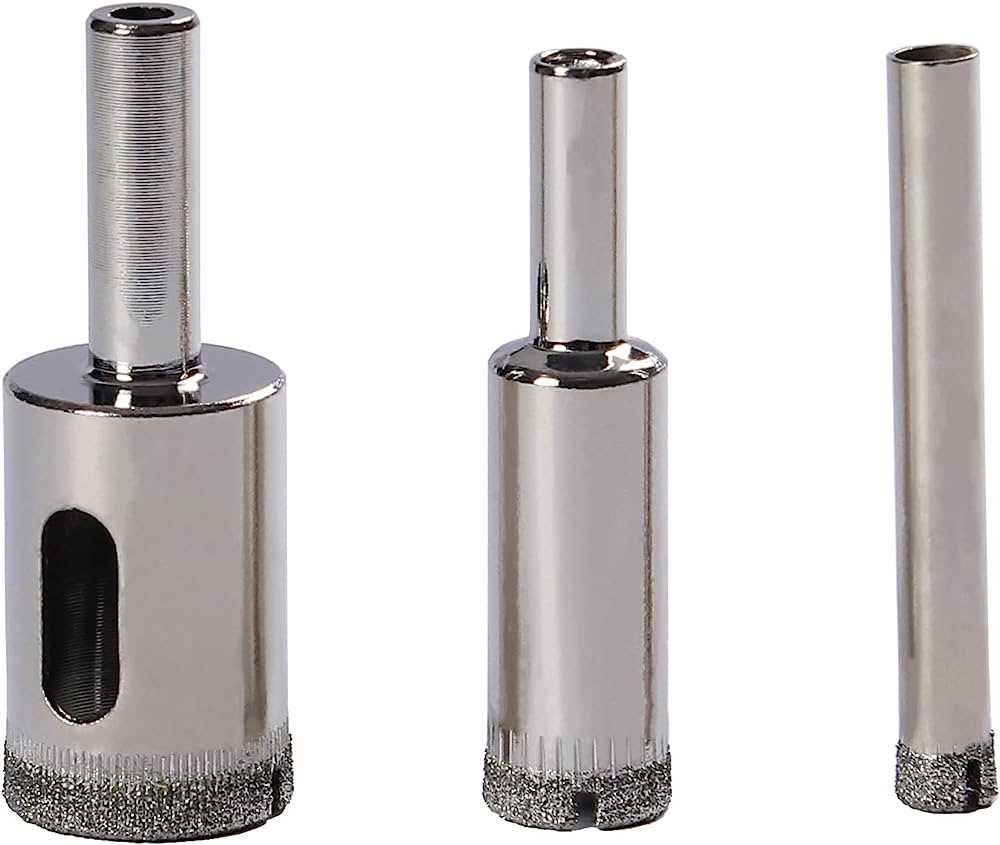
Carbide tipped drill bits are another popular choice for granite drilling due to their superior hardness and durability. These bits have a carbide tip that is brazed onto the steel body, creating a strong and long-lasting tool.
- Hardness: Carbide tipped drill bits are extremely hard, allowing them to penetrate granite with ease.
- Durability: The carbide tip provides excellent wear resistance, ensuring that the drill bit lasts longer and maintains its sharpness for extended use.
- Performance: Carbide tipped drill bits offer efficient drilling speed and precision, making them ideal for professional applications.
3. Diamond Coated
Diamond coated drill bits are the most effective option for drilling granite. These bits have a diamond coating on their tip, which makes them incredibly sharp and able to cut through the hardest materials.
- Sharpness: Diamond coated drill bits are the sharpest option available and can easily cut through granite without exerting too much pressure.
- Longevity: The diamond coating ensures that the drill bit remains sharp and effective for a long time, reducing the need for frequent replacements.
- Expensive: Diamond coated drill bits are the most expensive option due to the high cost of diamond materials. However, their superior performance justifies the investment for professional applications.
When choosing the right drill bit material for drilling granite, consider factors such as strength, heat resistance, hardness, durability, and cost. By selecting the appropriate material, you can ensure efficient and effective drilling through this tough stone.
Types of Drill Bits
1. Twist Drill Bits
Twist drill bits are the most common type of drill bits used for drilling into granite. They have a helical groove along the length of the bit, which helps in removing the material and prevents overheating of the bit.
2. Diamond Drill Bits
Diamond drill bits are specifically designed for drilling into hard materials like granite. These bits are coated with diamond particles, which are extremely hard and can scratch through the granite surface, creating holes.
3. Carbide Tipped Drill Bits
Carbide tipped drill bits are another popular option for drilling into granite. These bits have a carbide tip, which is extremely hard and can withstand the high temperatures generated during drilling.
4. Masonry Drill Bits
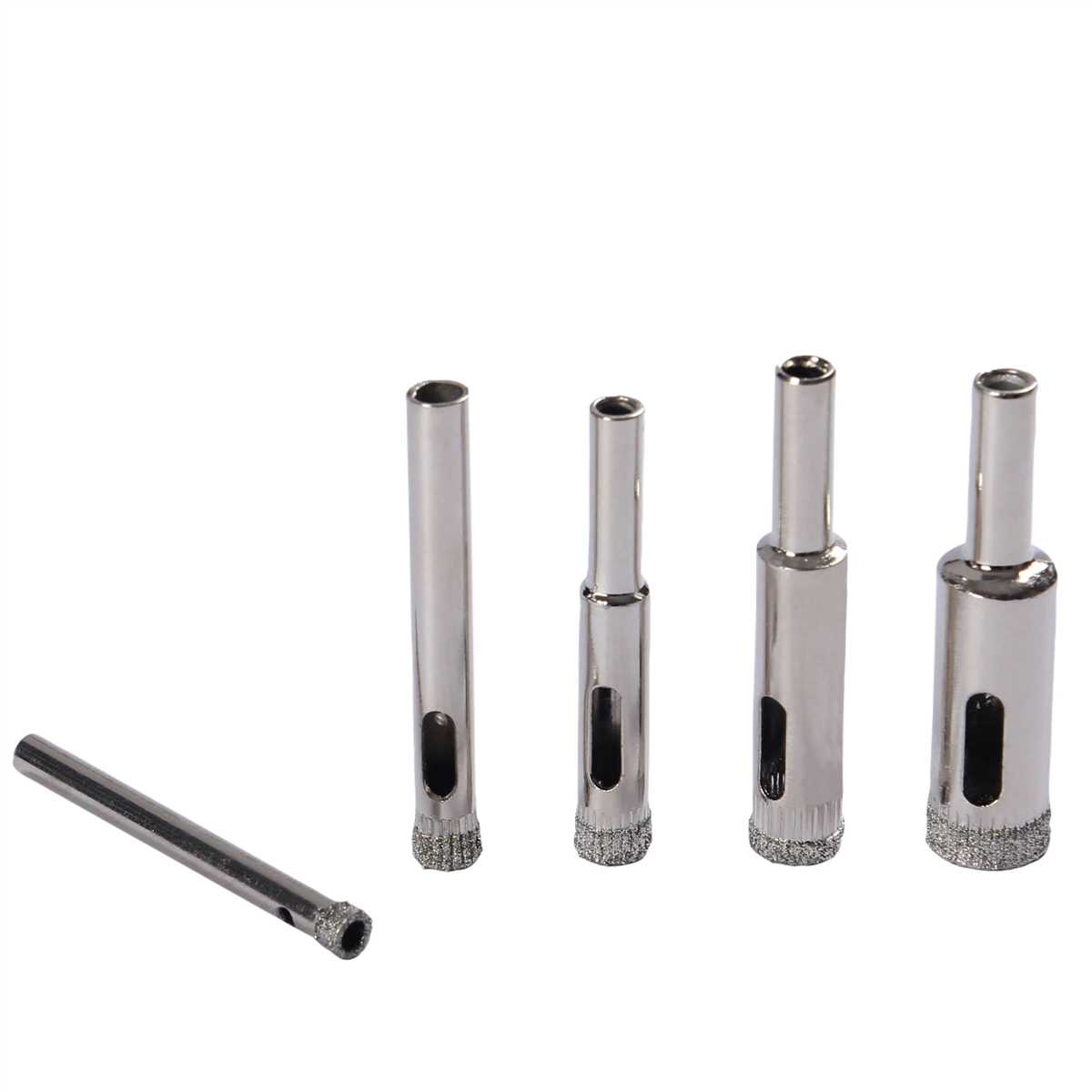
Masonry drill bits are versatile bits that can be used for drilling into a variety of materials, including granite. They have a special tip that helps in penetrating the hard surface of the granite.
5. Step Drill Bits
Step drill bits are designed to create holes of different diameters. They have a conical shape, with multiple steps of increasing diameter. These bits are ideal for creating holes of different sizes in granite.
6. Spade Drill Bits
Spade drill bits, also known as flat wood bits, are mainly used for drilling into wood. However, they can also be used for shallow drilling in granite, especially for applications where precision drilling is not required.
7. Forstner Drill Bits
Forstner drill bits are primarily used for drilling clean, flat-bottomed holes in wood. However, they can also be used for drilling shallow holes in granite, especially for applications where aesthetics is important.
Diamond-Tipped Bits
Overview
Diamond-tipped bits are the most durable and efficient option for drilling granite. These bits feature a diamond coating on the tip, which provides exceptional cutting power and heat resistance. The diamond coating allows for smooth and precise drilling through the tough and dense granite material.
Benefits
- Durability: The diamond coating on these bits makes them highly durable, allowing for extended use without losing their cutting performance.
- Efficiency: Diamond-tipped bits can quickly and efficiently drill through granite, saving you time and effort.
- Precision: The diamond coating ensures clean and precise drilling, allowing for accurate and smooth holes in granite.
- Heat Resistance: Diamond-tipped bits are designed to dissipate heat effectively, reducing the chances of overheating and extending the lifespan of the bit.
- Versatility: Diamond-tipped bits can also be used for drilling other hard materials such as porcelain, ceramic, and stone.
Considerations
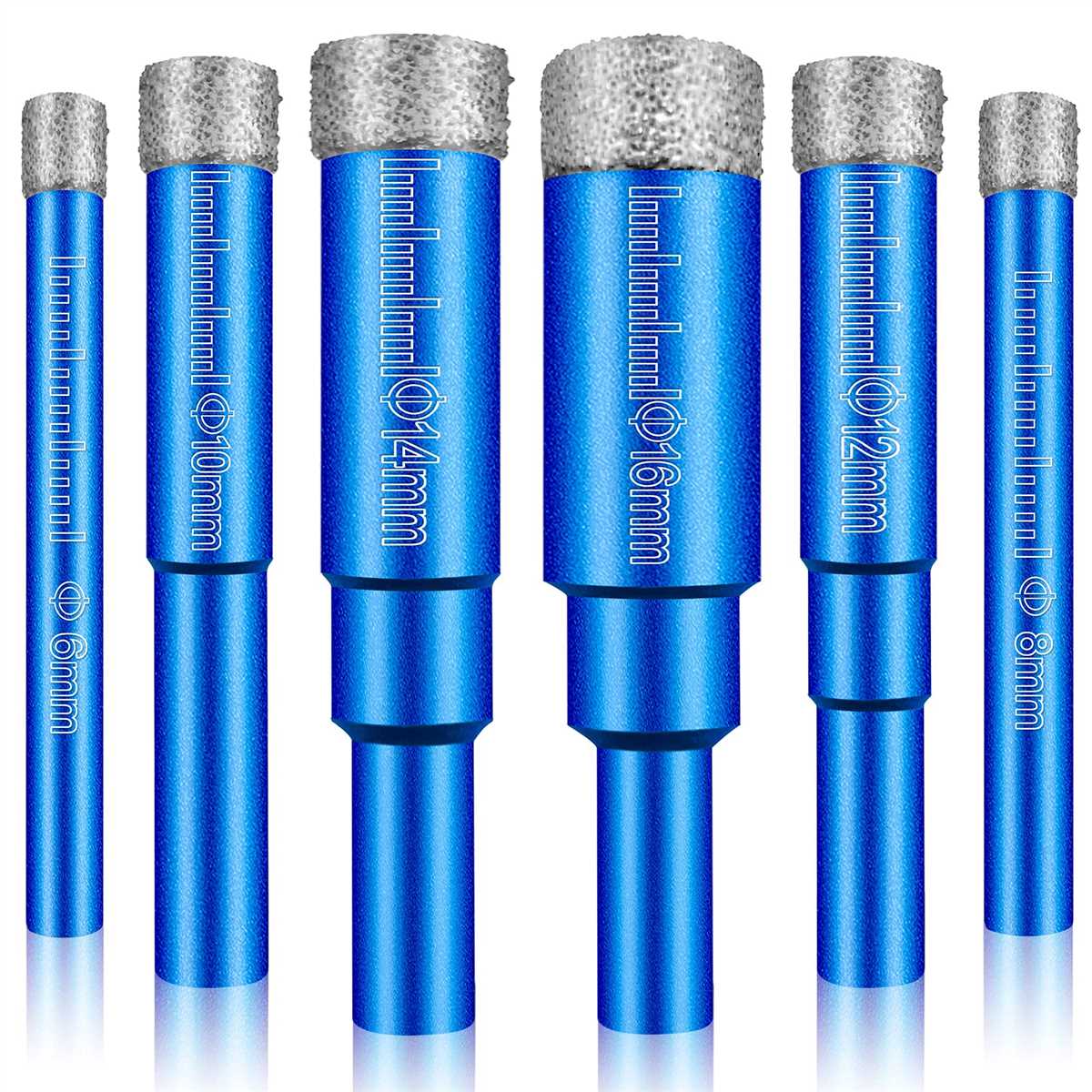
While diamond-tipped bits are the preferred choice for drilling granite, there are a few considerations to keep in mind:
- Cost: Diamond-tipped bits tend to be more expensive than other types of drill bits due to the added diamond coating. However, their longevity and performance justify the higher price.
- Size Range: Diamond-tipped bits may have a more limited range of available sizes compared to other types of drill bits.
- Safety Precautions: When using diamond-tipped bits, it is important to wear protective gear such as safety glasses, gloves, and a dust mask to prevent any potential injuries or inhalation of dust particles.
Tips for Using Diamond-Tipped Bits
- Start with a slower drilling speed to prevent the diamond coating from overheating.
- Apply steady and even pressure while drilling to maintain control and prevent the bit from wandering.
- Use water or a coolant to keep the bit and the granite surface cool during drilling, which will help extend the life of the bit.
- Regularly clean the bit to remove any debris or buildup that can affect its performance.
- Store diamond-tipped bits in a protective case or container to prevent damage to the delicate diamond coating.
In conclusion, diamond-tipped bits are the ideal choice for drilling granite due to their durability, efficiency, precision, heat resistance, and versatility. While they may require a larger initial investment, their superior performance and longevity make them well worth it for any granite drilling project.
Carbide-Tipped Bits
Carbide-tipped bits are a popular choice for drilling into granite due to their superior hardness and durability. These bits have a metal shank with a carbide tip, which is the hardest material after diamonds. The carbide tip is usually brazed onto the metal shank using a high-temperature process, ensuring a strong bond.
Carbide-tipped bits come in various sizes and shapes to suit different drilling needs. They are available in both straight shank and hex shank designs, allowing them to be used with different types of drills. The straight shank bits are commonly used with rotary drills, while the hex shank bits are suitable for use with hammer drills.
One of the main advantages of carbide-tipped bits is their ability to resist heat, making them ideal for drilling through tough materials like granite. The carbide tip can withstand high temperatures generated during the drilling process without losing its cutting ability. This makes carbide-tipped bits highly efficient and helps to prolong their lifespan.
When using carbide-tipped bits, it is essential to apply proper drilling techniques to achieve the best results. It is recommended to use a slower drilling speed to prevent overheating and to use a constant water supply to cool the bit and reduce dust. Additionally, it is essential to use light pressure and allow the bit to do the cutting to prevent it from wearing out prematurely.
Carbide-tipped bits are widely available and can be purchased from specialty tool stores or online retailers. They may be more expensive than other types of drill bits, but their durability and ability to drill through hard materials like granite make them a worthwhile investment for professionals and DIY enthusiasts alike.
High-Speed Steel Bits
High-speed steel (HSS) bits are commonly used for drilling into harder materials like granite. These bits are made from a durable and heat-resistant material called high-speed steel, which allows them to maintain their sharpness and effectiveness even when drilling through tough materials.
HSS bits are known for their ability to withstand high temperatures generated during the drilling process. This makes them suitable for use with harder stones, including granite. They are also versatile and can be used with other materials such as wood and metal.
When using HSS bits to drill into granite, it is important to use a slow drilling speed and apply steady pressure. This will help prevent the bit from becoming dull or overheating. It is also recommended to use a cooling agent, such as water or cutting oil, to lubricate the bit and reduce friction.
Another advantage of HSS bits is that they are relatively affordable compared to other types of drill bits. However, they may not last as long as more specialized bits when used extensively on hard materials like granite.
Pros of High-Speed Steel Bits:
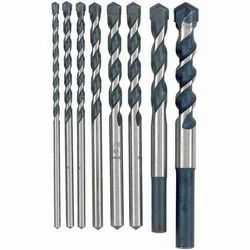
- Durable and heat-resistant
- Versatile and can be used with various materials
- Relatively affordable
Cons of High-Speed Steel Bits:
- May not last as long on hard materials like granite
In conclusion, high-speed steel bits are a popular choice for drilling into granite due to their durability, versatility, and affordability. However, they may not be the best option for long-term use on hard materials. Consider other specialized bits if you require prolonged and frequent drilling in granite.
Choosing the Right Diameter
When it comes to drilling into granite, choosing the right diameter for your drill bit is crucial. The diameter of the drill bit will determine the size of the hole you can create, and it’s important to choose the correct size to ensure the best results.
There are a few factors to consider when selecting the right diameter for your drill bit:
- The size of the hole you need to create: Consider the purpose of the hole and the size requirements. Are you drilling for a small screw or a larger anchor? Knowing the size of the hole you need will help you determine the diameter of the drill bit.
- The type of material you are drilling into: Granite is a tough and durable material, and drilling into it requires a drill bit with a strong cutting edge. If you choose a drill bit with too small of a diameter, it may not be able to handle the hardness of the granite.
- The type of drill you are using: Different types of drills may have specific requirements for the diameter of the drill bit they can use. Check the specifications of your drill to ensure you choose a compatible size.
Here is a general guide for choosing the right diameter for your drill bit when drilling into granite:
| Hole Size (Inches) | Diameter of Drill Bit (Inches) | Diameter of Drill Bit (Millimeters) |
|---|---|---|
| 1/8″ | 1/8″ | 3.175mm |
| 1/4″ | 1/4″ | 6.35mm |
| 3/8″ | 3/8″ | 9.525mm |
| 1/2″ | 1/2″ | 12.7mm |
| 5/8″ | 5/8″ | 15.875mm |
Remember to always use the appropriate safety gear when drilling into granite, such as safety glasses, gloves, and a dust mask. Following proper drilling techniques and choosing the right diameter for your drill bit will help you achieve clean and precise holes in your granite projects.
FAQ:
What is granite and why is it important to choose the right drill bit for it?
Granite is a type of natural stone that is commonly used for countertops, flooring, and other applications in construction and home improvement. It is a dense and hard material that requires specific tools to work with. Choosing the right drill bit is important to ensure that the holes drilled in granite are clean and precise, without causing damage to the stone or the drill bit itself.
What types of drill bits are suitable for drilling granite?
There are several types of drill bits that are suitable for drilling granite, including diamond-tipped drill bits, carbide-tipped drill bits, and masonry drill bits with a hardened tip. These drill bits are designed to withstand the hardness of granite and provide clean and accurate holes.
Which drill bit is best for drilling holes in granite countertops?
For drilling holes in granite countertops, diamond-tipped drill bits are the best choice. Diamond is one of the hardest materials, and diamond-tipped drill bits are specifically designed to handle the hardness of granite. They provide excellent precision and durability, making them ideal for this purpose.
Can a regular drill bit be used for drilling granite?
No, using a regular drill bit for drilling granite is not recommended. Regular drill bits are not designed to handle the hardness of granite and may cause damage to the stone or the drill bit itself. It is important to use drill bits that are specifically designed for drilling hard materials like granite.
What precautions should be taken when drilling granite?
When drilling granite, it is important to take several precautions to ensure safety and proper drilling. Firstly, it is recommended to wear safety glasses and gloves to protect yourself from any flying debris. Secondly, make sure to apply gentle and consistent pressure when drilling to avoid putting too much stress on the drill bit. Additionally, it is advisable to use a lubricant or water to cool the drill bit and prevent overheating.
How can I determine the right size of drill bit to use for drilling granite?
To determine the right size of drill bit for drilling granite, you should consider the size of the hole you need to drill. Measure the diameter of the hole and choose a drill bit that matches that size. It is always better to choose a slightly smaller size drill bit and gradually increase the size if needed, rather than starting with a larger size and risking damage to the granite.
Video:











